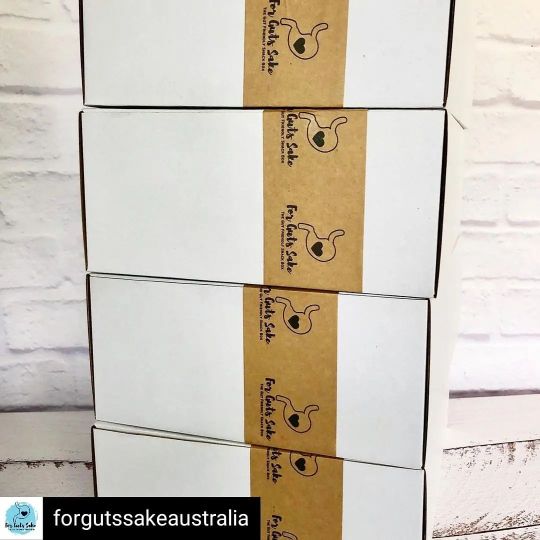#IBSManagement
Explore tagged Tumblr posts
Text
Myth: Probiotics work for everyone. Reality: Not always. While probiotics can benefit many, they might worsen symptoms in some—especially those with SIBO or certain gut imbalances. Gut health is personal. Avoid self-prescribing and consult a specialist for tailored advice. . . . Schedule a consultation: Dr. Hitendra K Garg
📲 8920361841, 8920632657 📲 Follow us: @drhitendragarg Visit: www.drhitendrakgarg.com . . .
#ProbioticsFacts#GutHealthMyths#DigestiveHealth#SIBOAwareness#MythVsReality#ProbioticsNotForAll#GastroenterologistDelhi#DrHitendraGarg#IBSManagement#FunctionalGutHealth
0 notes
Text
Get the Best IBS Treatment in Ahmedabad at Gastro1 Hospital
Gastro1 Hospital offers the best IBS treatment in Ahmedabad with advanced care options. From diet changes to medical management, we guide you at every step. Patients rely on our experience, understanding, and long-term results. Schedule your consultation now and feel better, one step at a time.

#IBSTreatmentAhmedabad#BestIBSTreatment#GastroCareAhmedabad#IBSRelief#DigestiveHealthAhmedabad#IBSManagement
0 notes
Text
Irritable Bowel Syndrome (IBS): Symptoms, Causes, and Management
Irritable Bowel Syndrome (IBS) is a common gastrointestinal disorder that affects the large intestine. While it doesn’t cause structural damage, IBS significantly impacts quality of life due to its uncomfortable symptoms.

Symptoms of IBS
Abdominal pain or cramping, often relieved after a bowel movement.
Bloating and gas.
Alternating episodes of diarrhea and constipation.
Mucus in the stool.
What Causes IBS?
The exact cause of IBS remains unclear, but several factors may contribute:
Gut-Brain Interaction: Abnormalities in communication between the gut and brain.
Food Sensitivities: Trigger foods like dairy, gluten, and fatty foods.
Stress: Emotional stress can exacerbate symptoms.
Gut Microbiota Imbalance: Disruptions in gut bacteria.
Managing IBS
Dietary Adjustments:
Follow a low-FODMAP diet to reduce symptoms.
Identify and avoid trigger foods through an elimination diet.
Lifestyle Changes:
Regular exercise to regulate bowel movements.
Stress management techniques such as yoga or meditation.
Medications:
Fiber supplements or laxatives for constipation.
Anti-diarrheal medications for diarrhea.
Antispasmodics to relieve abdominal cramps.
Probiotics:
Help restore balance in gut bacteria.
When to See a Gastroenterologist
If symptoms persist, worsen, or interfere with daily life, consulting a gastroenterologist is essential for personalized treatment and to rule out other conditions.
#IBSRelief#DigestiveHealth#GastroCare#GutHealthMatters#IBSManagement#HealthyDigestiveSystem#LowFODMAP#BloatingRelief#GastroenterologySupport#IBSHelp
0 notes
Text
#ChatGPTPrompts#Gastroenterology#DietitianPrompts#NutritionistPrompts#DigestiveHealth#NutritionCare#ClinicalDietitian#IBSManagement#GutHealth#NutritionalTherapy
0 notes
Text

Symptoms of Irritable Bowel Syndrome (IBS) ⚠️ Are you experiencing: ✔️ Abdominal pain ✔️ Diarrhea or constipation ✔️ Bloating and gas? 📍 Visit Prime Indian Hospital for IBS diagnosis and management. 📞 98844 93140, 87545 90905 🌐 primeindianhospitals.com #IBS #DigestiveDisorder #IBSManagement #PrimeIndianHospital
0 notes
Link
👋 Are you experiencing bloating, gas, and stomach pain after eating certain foods? You might have FODMAP intolerance. FODMAPs are short-chain carbohydrates that can be difficult to digest for some people. 🤔 The symptoms of FODMAP intolerance can be confusing and frustrating. They can include abdominal pain, bloating, constipation, diarrhea, and nausea. But don't worry, there are solutions to help manage these symptoms. 💡 The low FODMAP diet is an effective solution for managing FODMAP intolerance. This diet involves avoiding high FODMAP foods and gradually reintroducing them to determine your individual tolerance level. Working with a registered dietitian can also be helpful in creating a personalized plan.1. Understanding FODMAP Intolerance: An Overview of Symptoms and Causes FODMAP Intolerance: A condition where certain carbohydrates are poorly absorbed in the small intestine. Common symptoms include bloating, abdominal pain, diarrhea, and constipation. It affects up to 15% of the population and can be managed through diet. The low FODMAP diet is an effective treatment for reducing symptoms. Causes: FODMAPs are found in many foods, including wheat, dairy, and some fruits and vegetables. The inability to digest FODMAPs can be due to genetic factors or damage to the gut lining. IBS and other digestive disorders are often associated with FODMAP intolerance. Consulting a healthcare professional can help diagnose and manage the condition. 2. Common Foods High in FODMAPs: Identifying Triggers for IntoleranceIdentifying triggers for FODMAP intolerance can be challenging. Here are some common high FODMAP foods: Fructose: apples, pears, honey, agave, watermelon 🍎🍐🍯🍉 Lactose: milk, yogurt, ice cream, soft cheese 🥛🍦🧀 Fructans: wheat, garlic, onion, inulin, artichokes 🌾🧄🧅🌿 Galactans: lentils, chickpeas, kidney beans, soybeans 🍲🥙🥫 Polyols: avocados, mushrooms, sweeteners (xylitol, sorbitol) 🥑🍄🍬 It's important to note that not all high FODMAP foods will trigger symptoms in everyone. Experimentation is key. Keeping a food diary can help identify which foods cause symptoms. Eliminating high FODMAP foods for 2-6 weeks can also help pinpoint triggers. Reintroducing high FODMAP foods one at a time can help determine tolerance levels. A registered dietitian can assist in this process.3. Managing FODMAP Intolerance: Tips for a Low-FODMAP DietLiving with FODMAP intolerance can be challenging, but a low-FODMAP diet can help manage symptoms. Here are some tips: Avoid high-FODMAP foods like garlic, onion, wheat, and dairy. Choose low-FODMAP alternatives like gluten-free bread, lactose-free milk, and garlic-infused oil. Read food labels carefully and check for FODMAP ingredients. Plan meals ahead of time and bring low-FODMAP snacks on the go. Experiment with new low-FODMAP recipes to keep meals interesting. Remember, a low-FODMAP diet is not a permanent solution. Reintroduce high-FODMAP foods gradually to determine your tolerance level. Consult a registered dietitian for personalized advice and support. Stay hydrated and aim for a balanced diet with plenty of fruits, vegetables, and lean protein. Be mindful of stress and its impact on digestive symptoms. Consider probiotics and other supplements as part of your management plan. Stay positive and don't let FODMAP intolerance control your life! With the right tools and mindset, managing FODMAP intolerance can be a manageable part of your daily routine. 🍏🥕🍗4. Alternative Solutions for FODMAP Intolerance: Probiotics and Digestive EnzymesProbiotics can help improve gut health by introducing beneficial bacteria. Look for strains like Bifidobacterium and Lactobacillus. 🌿 🌱 🍓 Digestive enzymes can help break down FODMAPs before they reach the large intestine. Look for enzymes like alpha-galactosidase and lactase. 🥦 🍍 🥑 It's important to note that probiotics and digestive enzymes are not a cure for FODMAP intolerance, but they can help manage symptoms. 👍 🙌 💪 Consult with a healthcare professional before starting any new supplements or dietary changes. 👩⚕️ 👨⚕️ 💊 5. Coping with FODMAP Intolerance: Lifestyle Changes and Stress Reduction TechniquesLiving with FODMAP intolerance can be challenging, but there are lifestyle changes and stress reduction techniques that can help. Eat smaller, more frequent meals to avoid triggering symptoms. Avoid high FODMAP foods like garlic, onion, and wheat. Try low FODMAP alternatives like rice, quinoa, and gluten-free bread. Keep a food diary to track symptoms and identify trigger foods. Stress can also exacerbate FODMAP intolerance symptoms, so it's important to practice stress reduction techniques. Exercise regularly to reduce stress and improve gut function. Practice mindfulness techniques like meditation and deep breathing. Get enough sleep and prioritize self-care. Consider therapy or counseling to manage stress and anxiety. Remember, everyone's FODMAP intolerance is unique, so it's important to work with a registered dietitian to develop a personalized plan. 🍴🧘♀️💆♂️📝6. Seeking Professional Help: When to Consult a Doctor or Registered Dietitian for FODMAP IntoleranceIt can be challenging to manage FODMAP intolerance on your own. Here are some signs that you should seek professional help: Severe symptoms that interfere with daily life Difficulty identifying trigger foods Unintended weight loss Chronic diarrhea or constipation A doctor can rule out other conditions and prescribe medication if necessary. A registered dietitian can help you create a personalized diet plan and ensure you're getting all necessary nutrients. It's important to find a healthcare provider who is knowledgeable about FODMAPs. Ask for referrals from friends or search for a specialist online. Remember, FODMAP intolerance is manageable with the right support. Don't hesitate to seek professional help if you need it. 👩⚕️💊🥦🍓7. Staying Informed: Resources and Support for Living with FODMAP IntoleranceLiving with FODMAP intolerance can be challenging, but there are resources and support available to help you navigate this condition. Monash University FODMAP App: This app provides a comprehensive list of low FODMAP foods and recipes. FODMAP Friendly Certification: Look for this certification on food products to ensure they are low in FODMAPs. FODMAP Dietitians: Consult with a registered dietitian who specializes in FODMAPs for personalized guidance. Joining FODMAP support groups on social media platforms like Facebook can provide a sense of community and helpful tips. FODMAP Life: A website and social media platform that provides recipes, tips, and support for those living with FODMAP intolerance. The FODMAP Formula: A blog that provides resources and support for those living with FODMAP intolerance. FODMAP Everyday: A website that provides recipes and resources for those following a low FODMAP diet. It's important to stay informed about FODMAPs and how they affect your body. Keep up to date with the latest research and news on FODMAPs. Monash University FODMAP Research: This website provides the latest research on FODMAPs and their effects on the body. IBS Network: A UK-based charity that provides information and support for those living with IBS and FODMAP intolerance. Low FODMAP Living: A website that provides resources and information on living with FODMAP intolerance. Remember to always consult with a healthcare professional before making any changes to your diet or lifestyle. In conclusion, FODMAP intolerance can cause a range of uncomfortable symptoms, but there are solutions available. The low FODMAP diet is an effective way to manage symptoms and identify trigger foods. Working with a registered dietitian can provide personalized guidance and support. Remember, it's important to properly diagnose FODMAP intolerance and not self-diagnose. With the right treatment plan, individuals with FODMAP intolerance can enjoy a variety of foods and live a comfortable life. 🥑🍓🍞 https://symptomfinder.com/fodmap-intolerance-symptoms-solutions/?_unique_id=6480b66f95d41
0 notes
Photo

Reposted from @forgutssakeaustralia Have you started your Christmas shopping yet? There’s only 5 Saturdays left before Christmas 😱🤯🎅🏻 Where has 2021 gone? #christmassnacks#secretsanta#glutenfree#lowfodmap#glutenfreesnacks#ibs#ibsmanagement#snacktime Shop this box and more on our website! Link in bio @subscriptionboxaustralia https://www.instagram.com/p/CWxwasjvlLP/?utm_medium=tumblr
0 notes
Text

Struggling with IBS? A Low FODMAP diet might be the key to relief. This evidence-based approach helps identify food triggers and reduce digestive discomfort. From portion control to smart food swaps, start your journey toward better gut health with these essential tips. Always consult a dietitian for personalized guidance.🦠✨ . . . Schedule a consultation: Dr. Hitendra K Garg
📲 8920361841, 8920632657 📲 Follow us: @drhitendragarg Visit: www.drhitendrakgarg.com
#IBSRelief#IrritableBowelSyndrome#GutHealth#DigestiveHealth#IBSManagement#LowFODMAP#LowFODMAPDiet#FODMAPFriendly#IBSDietPlan#StomachHealth#DrHitendraKGarg#GastroenterologistIndia#DigestiveCare#IBSExpert#GutHealing#DelhiDoctor#GastroCare#KnowYourGut#HealthyGutHappyYou
1 note
·
View note